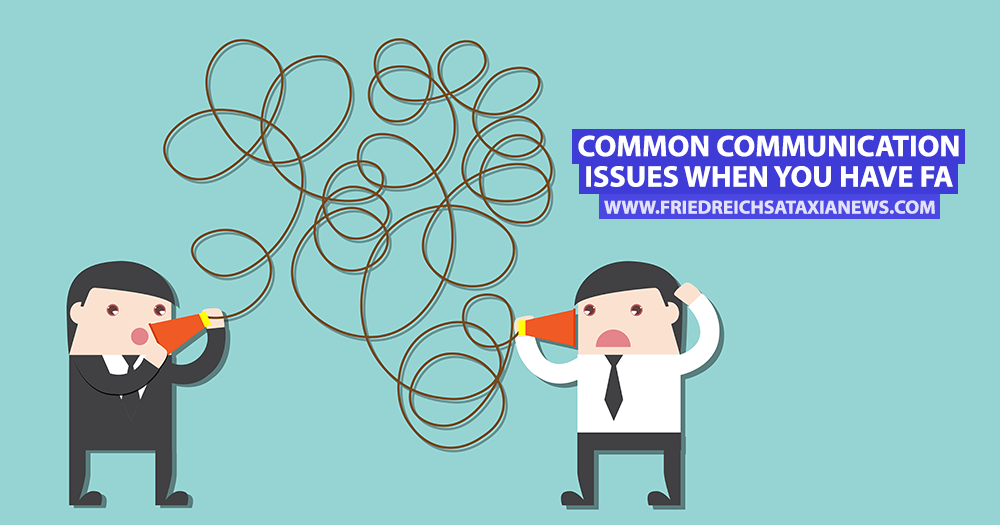Common Communication Issues When You Have FA

As an FA patient, it can be difficult to effectively communicate your exact needs, hesitations or fears to those whose help you need the most.
It can seem nearly impossible to tell family, friends, doctors, caregivers and others what you want. No matter how much your speech is or isn’t affected, other people often just don’t have the patience or interest to truly hear you out.
Assumptions about what you can and can’t do, as well as others feeling the need to intervene and do tasks for you instead of helping you happens regularly causing frustration. Looking to other FA patients can be essential to figuring out how to make your message clearer.
It’s important to realize that most people just don’t know what Friedreich’s ataxia entails. FA can be an invisible illness, which adds various levels of confusion and questions. On the outside, you don’t look sick — some would say “perfectly healthy” — but on the inside your muscles are weakening and you’re tired. Often, the only thing you want to do is lie down.
MORE: How to find your motivation when you have FA
So, when the waiter asks if you need anything else and walks away before you can spit out the words, or when you’re walking to your car looking like you just had a few drinks and constantly get stopped or asked about your sobriety, it becomes infuriating.
Usually, the response from others is what dictates how an encounter will go. If there is a certain energy exchanged or mood shift, patients can normally feel it and generally shut down. For example, if you have any kind of special request pertaining to food or even asking the doctor a specific question, when there is an eye roll or huff of air from impatience, chances are you’ll tell them to forget about it. It’s easier to avoid any type of situation which requires further explanation.
Join the Friedreich’s Ataxia News forums: an online community for people with FA and their caregivers.
How many times have you been in the middle of a task or trying to pick something up and someone else comes right in and finishes it for you? You know they’re just trying to help and offer their mobility or dexterity to compensate for yours, but they don’t understand how frustrating it is when you’re not asked if you need help before someone intervenes.
You’re usually more than capable of finishing it yourself, and sometimes you may even be challenging yourself to accomplish the task at hand. So, when someone else does that for you, the sense of accomplishment or even just the satisfaction of doing something yourself is eliminated. It’s a frustrating encounter that happens often but it is another aspect of Friedreich’s ataxia that patients are forced to deal with.
There isn’t only one way to deal with the constant miscommunication. It’s best that each patient comes up with their own mechanisms. That’s one of the greatest things about the FA community, there is always someone in a similar position who can help guide you.
MORE: Why it’s important to have friends and acquaintances with FA
Friedreich’s Ataxia News is strictly a news and information website about the disease. It does not provide medical advice, diagnosis or treatment. This content is not intended to be a substitute for professional medical advice, diagnosis, or treatment. Always seek the advice of your physician or another qualified health provider with any questions you may have regarding a medical condition. Never disregard professional medical advice or delay in seeking it because of something you have read on this website.






